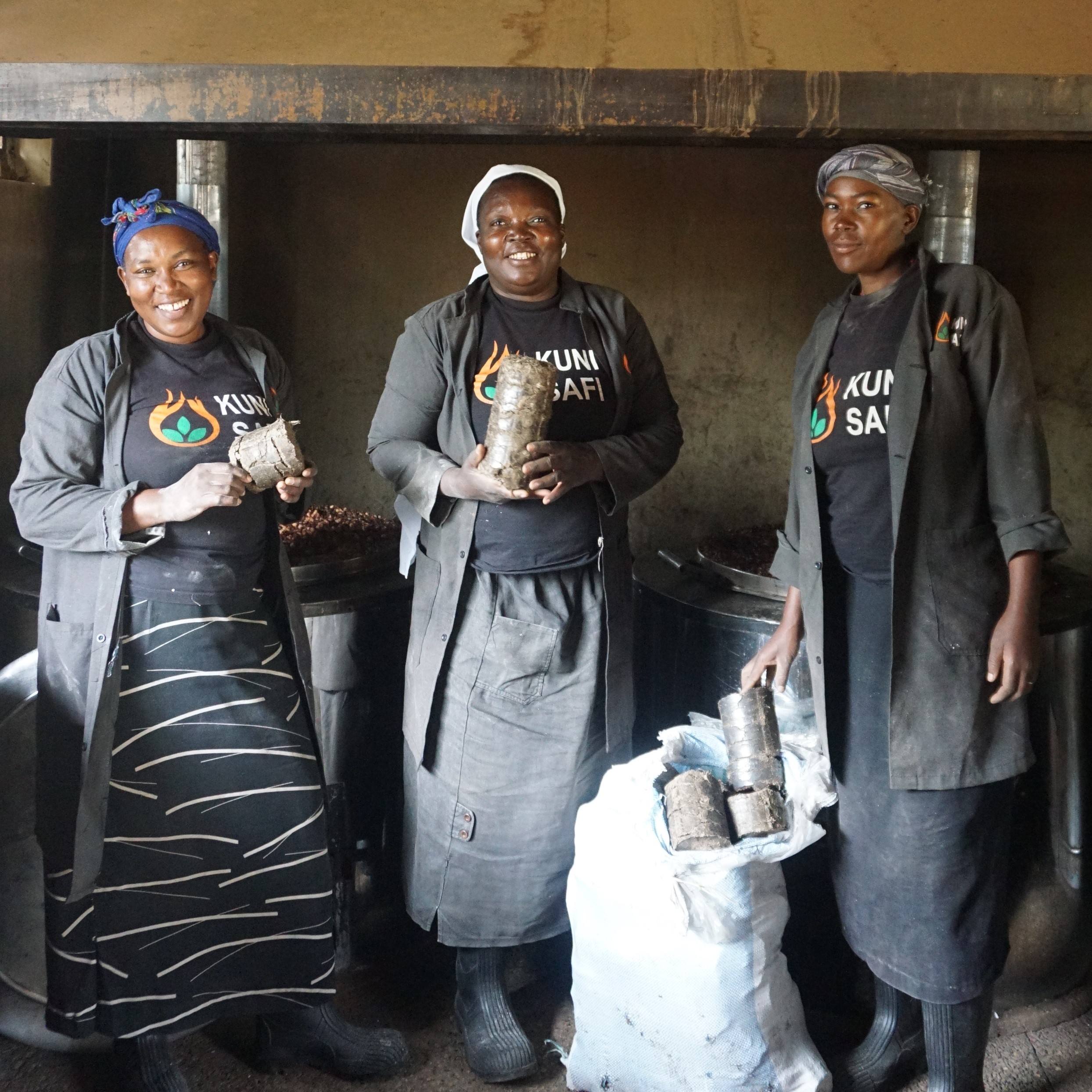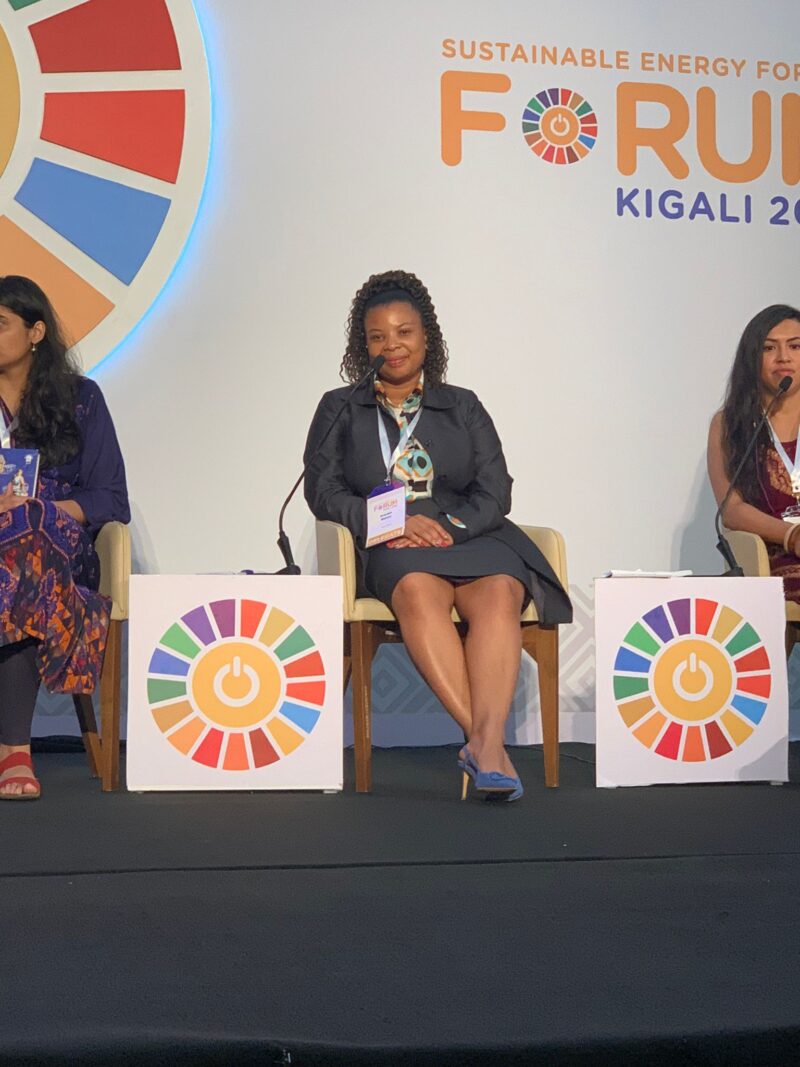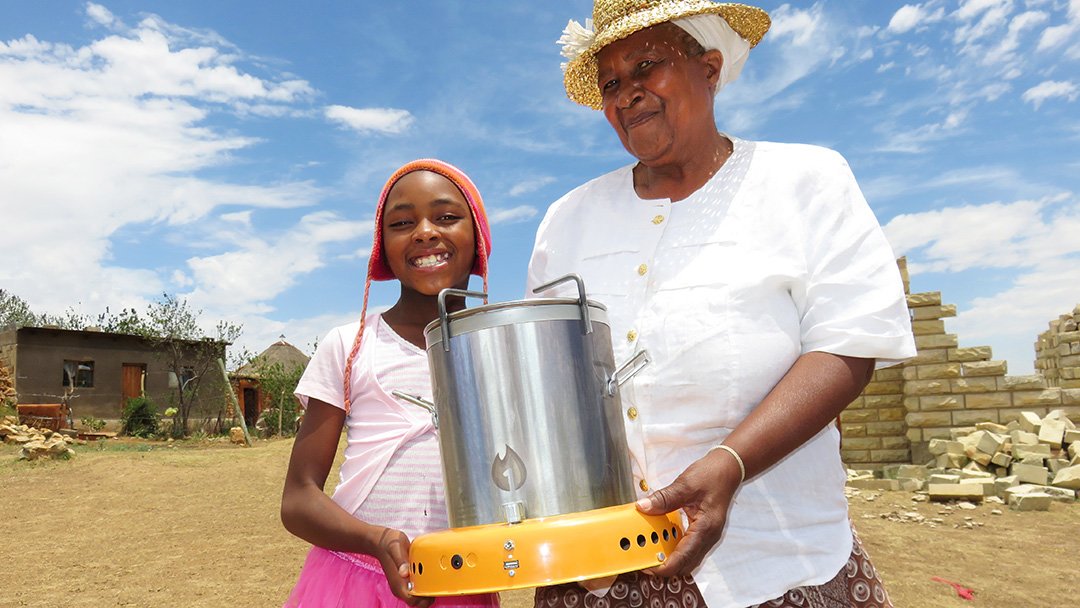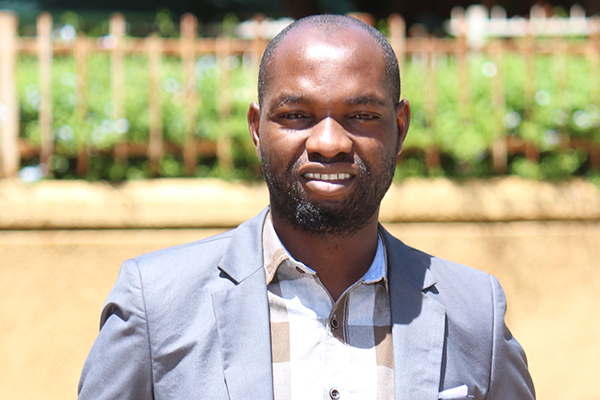
Acacia Innovations is a women-led Kenyan social enterprise that recycles sugarcane waste into low- carbon biomass briquettes. The briquettes are sold under the brand name Kuni Safi, which means ‘clean firewood’ in Swahili, to schools and children’s homes. Each installation can benefit up to 1,200 students and school employeees
The smokeless briquettes displace firewood and charcoal for cooking and industrial use, thereby saving trees and reducing toxic emissions. The resulting cleaner air has been noticed by schoolchildren and staff, with a significant reduction in respiratory illnesses from poor indoor air quality.
Acacia targets institutions that are primarily owned and operated by women entrepreneurs and recently expanded to serve restaurants, hotels and local industry. This successful diversification was accelerated by the pandemic when schools, which had made up 90% of their customer base, were closed.
This kind of small- and medium-sized institutional market is often avoided by cookstove and briquette distributors, which typically target either households or larger-scale businesses.
As the waste material and other inputs are all sourced locally and their customers are local, Acacia’s business model is also quite resilient to transportation or other supply chain disruptions. With EEP Africa financing, Acacia is expanding its production capacity and distribution region, as well as piloting a new type of carbonized briquette for sale to households as an eco-friendly charcoal alternative
Targeted Outcome and Impact
Acacia is the largest supplier of clean cooking fuels to schools and small businesses, each serving 20-2,000 people, in Kenya. They currently distribute to more than 500 schools, hotels and industrial customers and sell between 200 and 100,000 kg of briquettes per month.
Kuni Safi briquettes are 35% less expensive than firewood and 60% less than charcoal, which frees up substantial resources for food and other basic needs. By diversifying the customer base both upwards to industry and downwards to households, Acacia managed to achieve its highest monthly production output during the middle of the COVID-19 pandemic.
Acacia estimates that each tonne of briquettes sold saves 25 trees. At this rate, the project will save 1 million trees and reduce about 42,000 tCO2e in the next five years. Over time, the reduced pressure on local forests will be significant.
New customers report that Kuni Safi briquettes are higher quality than other varieties they have used, in terms of high compaction, high calorific value, low ash content and minimal clinker formation. Acacia aims to scale up to 4,000 small- and medium-sized institutions, resulting in large-scale benefits in health and safety.
All Acacia staff are native Kenyans, except the CEO, and 60% are women. Many of the women were not able to finish high school and this job opportunity, which pays a good wage and includes skills development, can be life changing for them and their families.
Leading by her values
Profile of Rethabile Mafura, Country Director Lesotho, African Clean Energy - Lesotho...
Inclusive Employment at African Clean Energy
Inclusive Employment at African Clean Energy...
Building a Start-up at the Nexus of Energy and Food
Profile of Admore Chiumia, Founder of Green Impact Technologies - Malawi...





